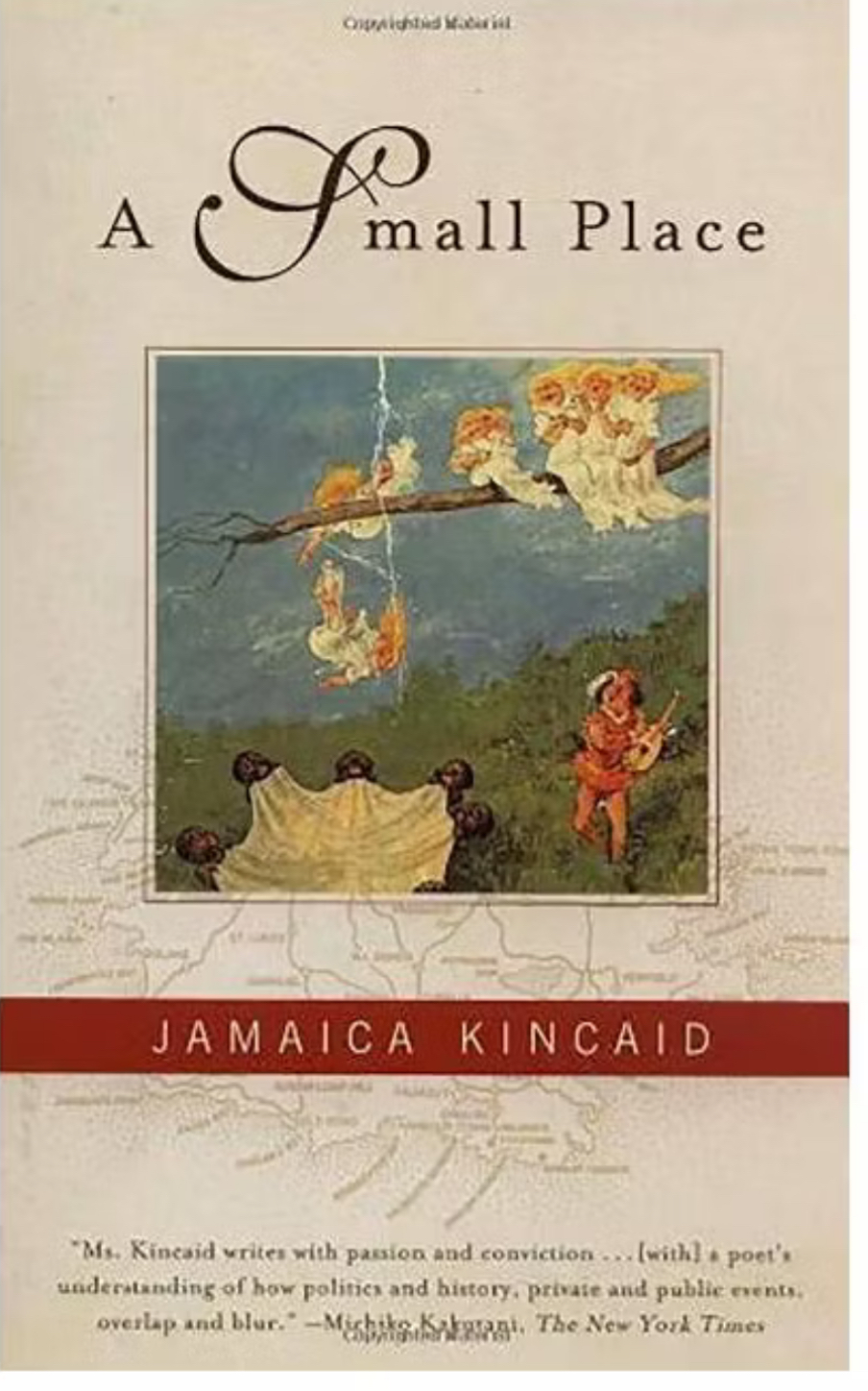If you are thinking of pursuing a degree in literature or are just someone who loves to read books on the aftermath of colonization and postcolonial studies, then this book is for you. Jamaica Kincaid’s book A Small Place is a work of creative nonfiction as it is based on reality. She writes intricately about a small island named Antigua. This novel is written from the point of view of a first-person narrator who provides a blunt outlook on the post-colonial state of Antigua, and describes the impact of tourism and how it plays a major role in maintaining corruption along with imbalanced wealth distribution.
This book feels like a conversation not only between the tourist and the Antiguans, but also between the reader and the writer, as Kincaid continuously uses the words you and I throughout the book which makes it quite intriguing.
A Small Place is divided into four loose sections, and in the span of only eighty pages, Jamaica Kincaid skillfully addresses all the critical issues accurately. In the first section, Kincaid addresses a tourist who is bewitched by the ethereal beauty of Antigua and wonders what it might look like from the inside. However, when he does get to know that it’s not in a very good condition, instead of exhibiting signs of distress, he is over the moon to see this island in a very reckless and deteriorated state not just physically, but also culturally, economically, and psychologically. In the third and fourth sections, Kincaid evaluates the post-colonial state of Antigua as it is today and the neocolonial influence left by the colonizers as a legacy to the Antiguan bourgeoisie.
The way she critiques the tourists and the Antiguan government is eye-opening. It not only feels realistic but relatable to me as a reader as I was immediately reminded of the state of my own country (Pakistan). I like this book a lot because it accurately depicts the deteriorated postcolonial state of countries like Antigua, and helps us to realize that Antigua and the like have so much potential to prosper, they just have to get back on their feet and work with all their might.
The structure of this novel is shaped like Antigua itself, beautiful on the surface level but rotten by fraudulence at its core. This is similar to how the author tries to criticize the wrongs, and addresses themes of corruption and colonization while maintaining a humorous tone. An example of her satire can be seen in this excerpt:
“Have you ever wondered to yourself why it is that all people like me seem to have learned from you is how to imprison and murder each other, how to govern badly, and how to take the wealth of our country and place it in Swiss bank accounts?” (Kincaid 34)
Her satirical and witty tone with a realistic touch is what makes this book stand out amongst others, as the author is not afraid to criticize the government for its corruption, and the tourists for adding to the crippling state of Antigua, because she believes that tourism is an instance of neo-colonialism and imperialism. Therefore, if you are a tourist in some postcolonial country, especially an American or European tourist, then this book won’t be an easy read as it is brutally honest. But we must not take anything the author says personally; rather, we as readers should try to understand the point she is trying to make.
All in all, what pushes me to recommend this novel is that it’s a thought-provoking and very powerful novel coming from a ‘subaltern’ herself, and Kincaid isn’t afraid of holding back her bitter yet truthful words, which are a definite blow to the face of corruption and injustice.
A recent graduate from Kinnaird College for Women University, with a bachelors degree in English Language and Literature. Kashaf Ahmad has a knack for writing and sharing motivational stuff. She loves to read self-help books and is a huge fan of manga and classics. Her hobby is to capture fleeting moments of life with her camera lens.
